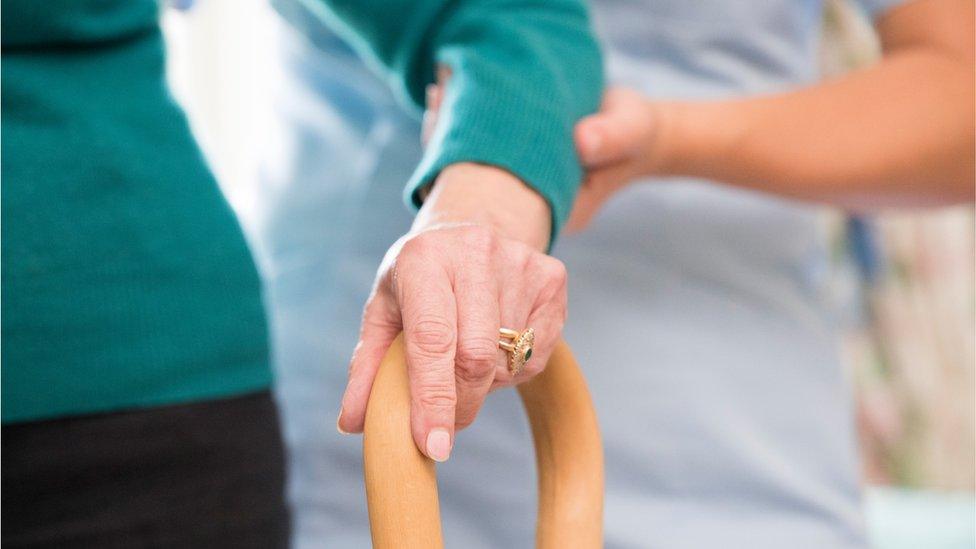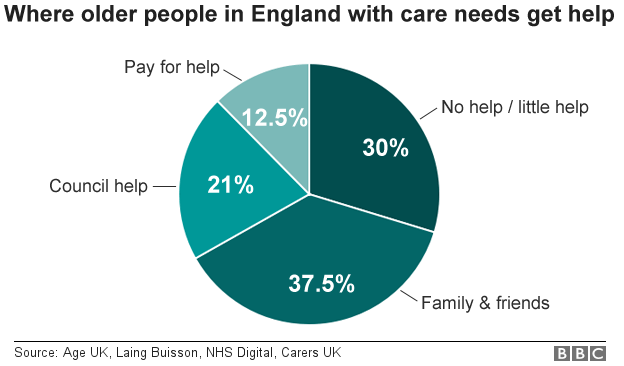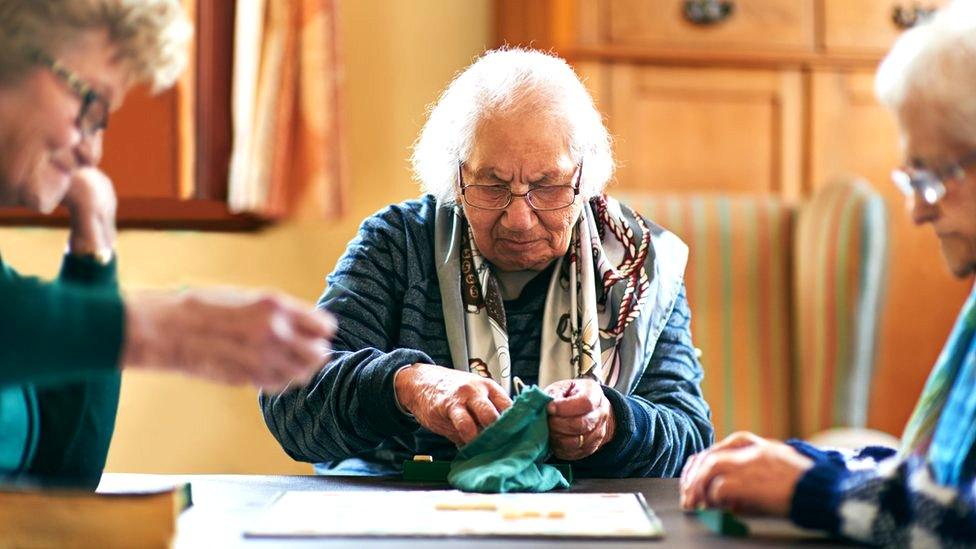Social care: Is free personal care the answer?
- Published

Social-care workers offer a vital service
Political parties have been talking about reforming social care for the past 20 years, amid claims the system is in crisis, with services stretched and thousands of people having to sell their homes to fund care.
Tony Blair came to power in 1997 promising to look at it - and since then, countless ideas have been put forward by all the parties.
The latest proposal has been made by Labour. Free personal care will be introduced for the over-65s in England if the party gains power.
What impact will this have?
Adult social care encompasses the support provided by councils to older people and younger adults with disabilities.
It includes everything from support to people in their own home to day centres and round-the-clock support in care homes.
The Labour policy looks at the personal care element of this for older people - help washing and dressing or preparing meals but not the cost of supplying food and elements of care that could be classed as housework, laundry or shopping.
It mirrors the policy introduced in Scotland in 2002.
Labour believes it will more than double the numbers receiving free personal care currently, to more than 400,000, and reduce the numbers facing "catastrophic" care costs.
But this would help just a fraction of those that need care. Age UK estimates there are about 1.4 million older people who do not receive the care they need.

This is because support is rationed on two grounds - needs and means.
On means, only those with assets of less than £23,250 receive support from the state to meet their costs at the moment. Labour's policy scraps this for personal care.
What it does not do - or certainly is not promising to do - is address the second issue, which means only those with the most severe needs receive help.
This means recipients have to be very infirm. Councils assess their ability to complete daily tasks - and to qualify, they have to be completely unable to perform at least two.
How will this be paid for?

Labour says the policy will cost £6bn a year, funded through general taxation.
But analysis by the IPPR think tank suggests this annual spend could double over the next 10 years.
Labour also wants to end the use of zero-hour contracts for care workers.
And what has not been addressed today, but will surely have to be at some point, is how to tackle the existing funding gap.
The Local Government Association says councils have insufficient funds to keep existing services running - and by 2025 they will be £3.6bn short.
This, in itself, will require significant increases in the £20bn a year currently spent on adult social care.
And how that will be funded is not yet clear.
The start of a care debate?
It is not surprising social care is featuring at the Labour Party conference - and the pledge on personal care has been genuinely welcomed.
The current system has remained largely unchanged in England since its introduction following World War Two.
As already mentioned, Scotland has changed its system, while Wales and Northern Ireland also offer some degree of universal entitlement - the cost of home care is capped in Wales and free for the over-75s in Northern Ireland - although, in each nation it is heavily rationed, so only those with the most acute needs receive help.
And this is not the first time Labour has come out in favour of free personal care. In the final stages of Gordon Brown's administration, the party proposed something similar.

Meanwhile, the Tories have looked at a number of different options since 2010. The first idea was for a cap on care costs. Legislation was even brought forward - but it was scrapped before it was introduced.
Then, in the 2017 election campaign, the party came up with a new idea, involving a complex set of changes to the rules about when people were charged for care - but within days, Prime Minister Theresa May had to back-track, amid criticism it amounted to a "dementia tax".
Since then, an expert group has been formed to come up with new plans. But the publication of these has been delayed several times, with the government currently promising they will be unveiled in "due course".
Expect to hear much more talk about social-care reform. But the big question - as it has been for two decades - is whether that talk will lead to real action.
- Published4 August 2019

- Published6 January 2019

- Published8 February 2017

- Published8 February 2017

- Published6 January 2017

